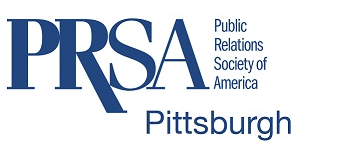New Diversity & Inclusion Chairs discuss visibility and impact that diverse voices can bring to Pittsburgh’s public relations industry
Photo by Alex Grubbs, Multimedia Lead
Compiled by Stacey Federoff
Web Content Manager
We, as PRSA Pittsburgh, recognize that we must elevate the voices of those who are so often silenced, and tell the stories of the individuals who are so often undervalued. We are proud to stand by and support individuals of all races, genders, ethnicities, religions, sexual orientations and abilities. Unfortunately, a lack of diversity continues to exist in our field. Your voices and stories are integral to changing the narrative and creating a future in which opportunities are equal.
In the last few months, after George Floyd was killed and Black Lives Matter protests took hold all over the world, we knew we couldn’t stay silent. We strove to give a platform to marginalized voices. We spoke about being an ‘only’ in Pittsburgh; we shared resources to help public relations professionals in Pittsburgh take the first step. We also recognized key campaigns during Pride and how to support LGBTQ+ people year-round.

Taylor Fife, PRSA Pittsburgh Diversity & Inclusion Co-Chair and Social Media Co-Chair

Megha Pai, PRSA Pittsburgh Diversity & Inclusion Co-Chair and Social Media Co-Chair
To ensure our chapter makes these efforts a priority long-term, we’re proud to announce the appointments of Taylor Fife and Megha Pai as our Diversity & Inclusion Co-Chairs. Both also serve as Social Media Co-Chairs on our board.
They both took the time to talk with PRSA Pittsburgh’s Communications Committee Chair Ashley Jones for our Screen To Screen series on Instagram Live. Here is a portion of that interview:
Q: How do you plan to help PRSA Pittsburgh promote diversity and inclusion in your new role as Diversity & Inclusion Co-Chair?
Taylor Fife: Implementing programs that promote diversity and inclusion in the workplace, specifically with events, panels and Q&As. Anything that we do, we want to show the diversity that exists, that’s out there — a diversity of age, career experience, race, sexual orientation, or any other unique identifier. We want to give diverse people a platform they might not get somewhere else. We want to be that support system for them that they may not be getting in their workplace. We also want to provide them with opportunities like a chance to be on our committee, maybe even a chance to be on the board or take the lead on a project.
I’m really excited about that because, especially when it comes to having diversity on panels with speakers, I know personally how satisfying and rewarding it feels to see someone who looks like you on a platform. It’s just an amazing feeling, so I would love to be able to give that to someone else through programming.
Megha Pai: I plan on promoting it mainly through social and on our blog, which is something we’ve been doing already. It’s been a great effort from the full board and the communications team, but I think really engaging people through education is the first step, then over time maybe we engage more of the membership so we get different perspectives like those of LGBTQIA+ members and people who are differently abled. People from underrepresented groups want to feel like their voices are heard in a professional way, but also overall, too. I’m a woman of color, but I don’t necessarily know the experiences of other people who are underrepresented. I feel it’s important to let their voices be heard — I’m still learning things, too.
Q: What are the biggest challenges that you see with diversity in our profession in Pittsburgh?
Taylor Fife: There’s not a lot of diverse voices at the table. There’s not a lot of diverse experiences. It’s a pipeline that is a larger societal issue. I mentioned it a little bit in my blog that I was in elementary school when I first kind of realized that I was different from the people around me, that I was the only person who looked like me.
It’s this pipeline — the systemic racism — that exists in all of our institutions in our educational system. I mentioned that I was the only Black woman to graduate from my major. If I’m the only black woman to graduate from my major, then I had this feeling that when I got to the workplace, I’d be the only Black woman again.
I think there definitely has to be more outreach, more mentorship, and — just like we were talking about — giving more people more platforms to speak. Because once you see someone else who looks like you, doing something like what we’re doing right now, it can impact somebody. Then they might say, well, I can do that. That’s how we get more and more people into our profession.
Q: What do you hope to accomplish as Diversity & Inclusion co-chair?
Taylor Fife: If I could just have the smallest impact, and it impacts somebody else, then it just keeps becoming like a chain reaction kind of thing; that’s honestly what I hope for.
Whenever I shared my blog, my father, he actually shared it out with his friends too. And they were all from Pittsburgh, and they’re all professionals, but they spoke about how they experienced the same exact things, and it caused them to leave Pittsburgh. They didn’t feel supported. I want to try to stop that pattern of people leaving because they don’t feel supported. If PRSA Pittsburgh can be a catalyst for change when it comes to that, that’s amazing.
Megha Pai: Like Taylor said, we want to make people feel included and make sure people see others like them in these positions. Because as someone who’s Indian-American, I’ve heard people stereotypically ask me why I haven’t chosen certain professions; people would say, ‘Oh, why aren’t you a doctor, why aren’t you an engineer?’ But anyone can be anything; anyone can have any career. You don’t have to stick to other people’s expectations of your livelihood.
Q: How can co-workers be allies to help combat workplace challenges in terms of diversity and inclusion?
Megha Pai: Co-workers can be allies just by listening whenever people bring up a problem or an issue or an idea — they can really be that supportive resource. Coworkers can take steps to educate themselves, too, and then take action by helping co-workers who might have a harder time speaking up with their ideas, or getting promoted, or taking the next step in their careers. Just having that collaborative dynamic would be really helpful.
To hear more of the interview, including Taylor’s reflections on how employers can address systemic racism and microaggressions in the workplace by becoming anti-racist and anti-oppressive, check out PRSA Pittsburgh’s IGTV tab on our Instagram page.
Communications and PR professionals of all identities and seniority levels are encouraged to inquire about joining our Diversity & Inclusion Committee at info@prsa-pgh.org





Leave a Reply
Want to join the discussion?Feel free to contribute!